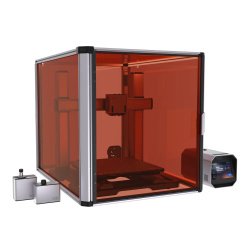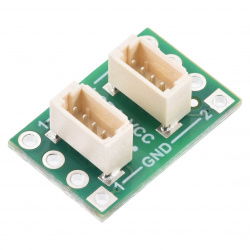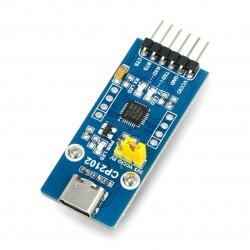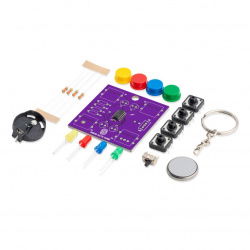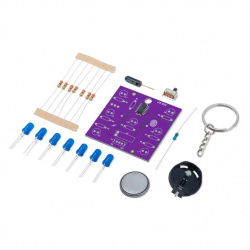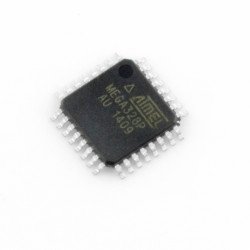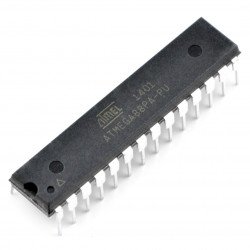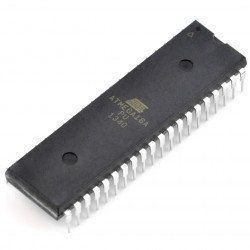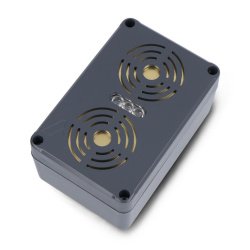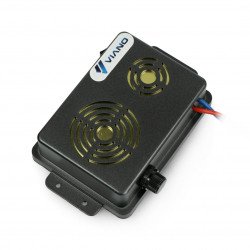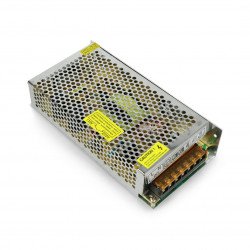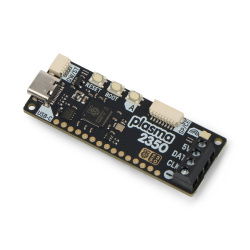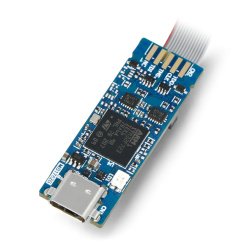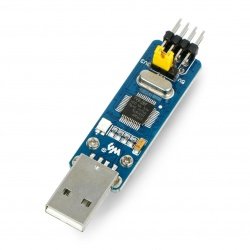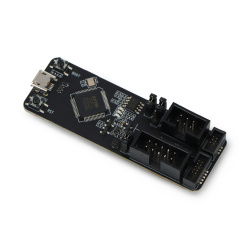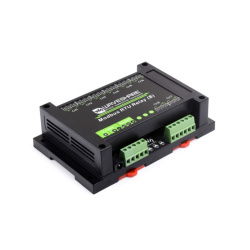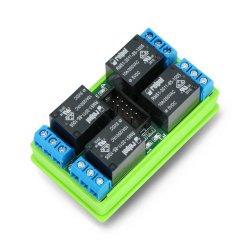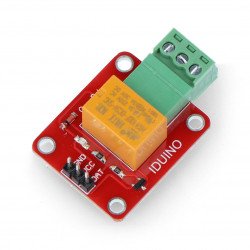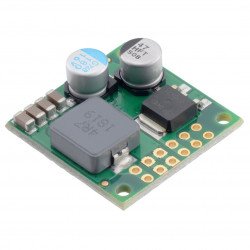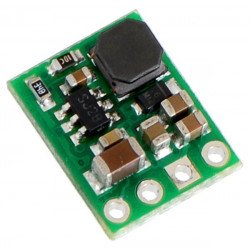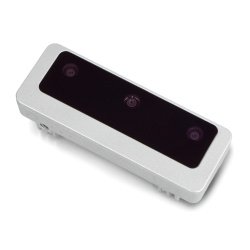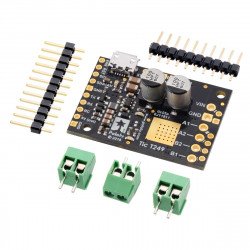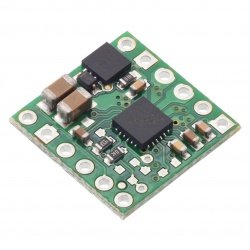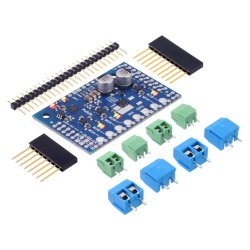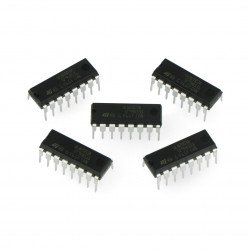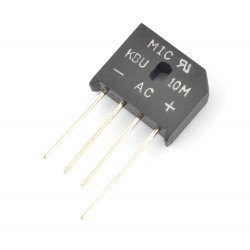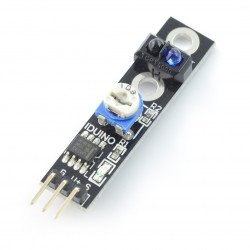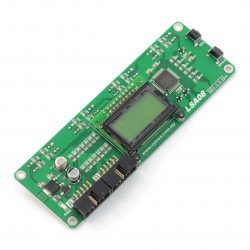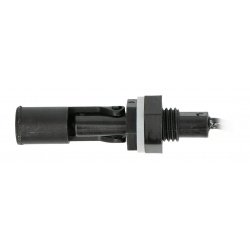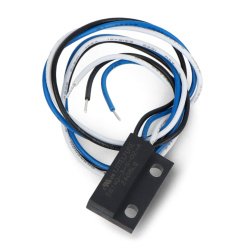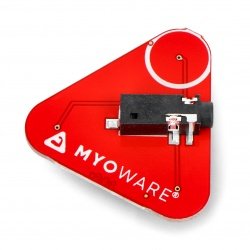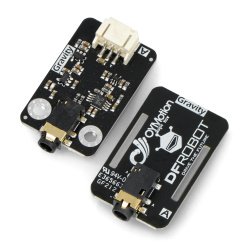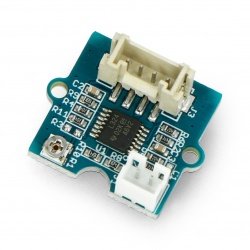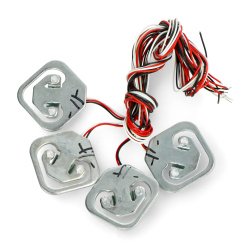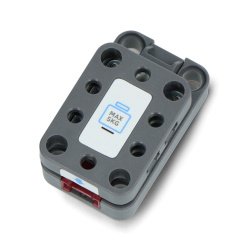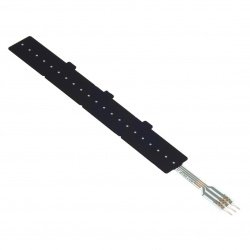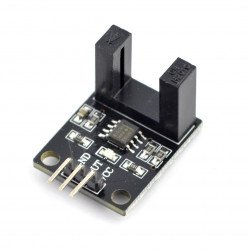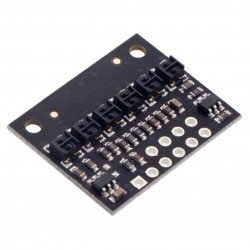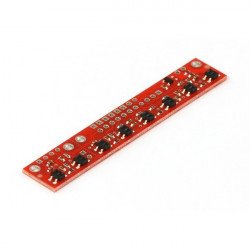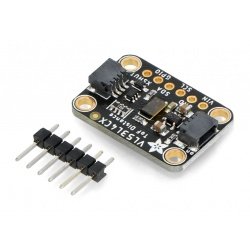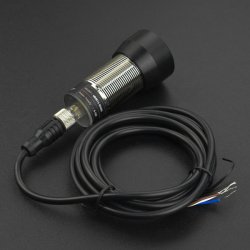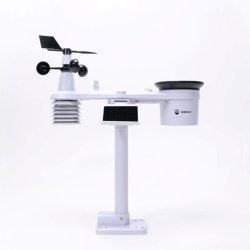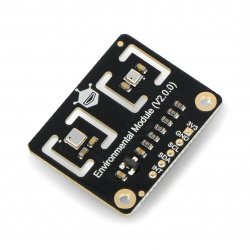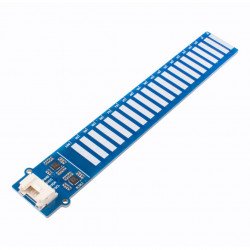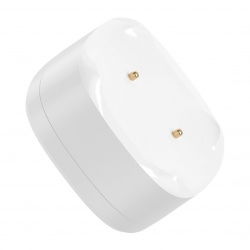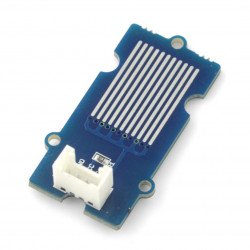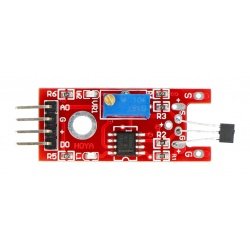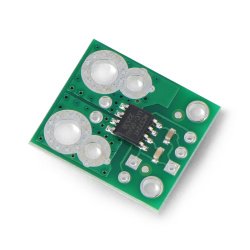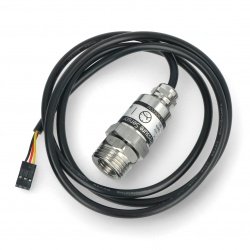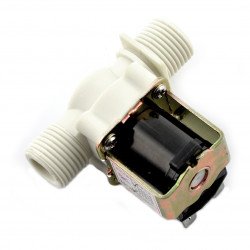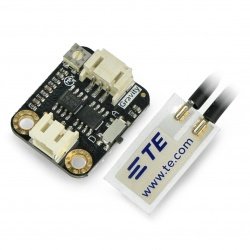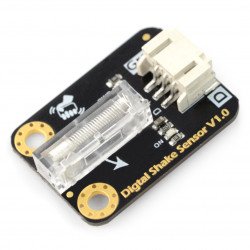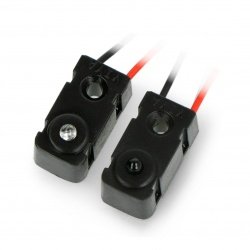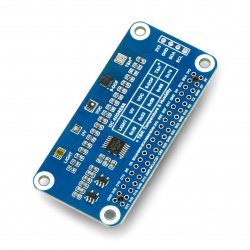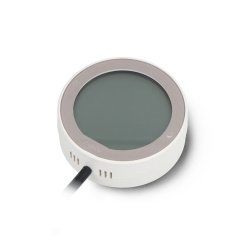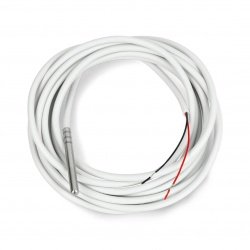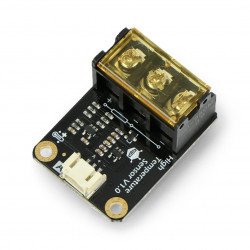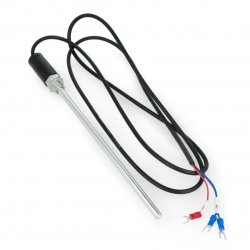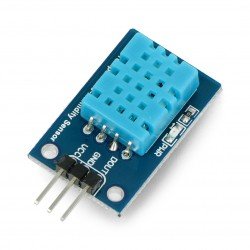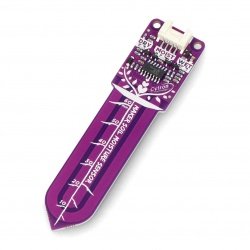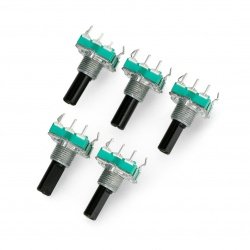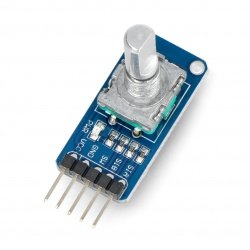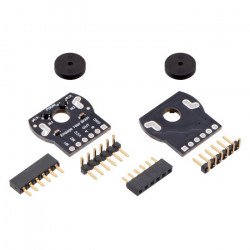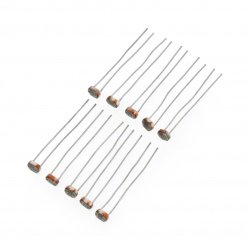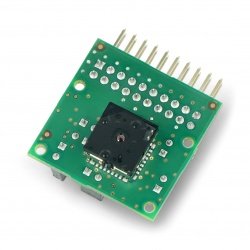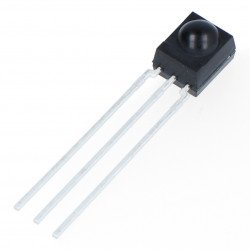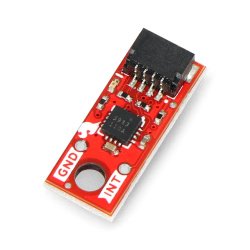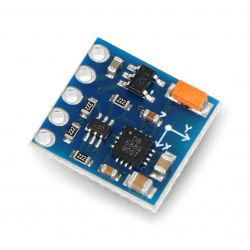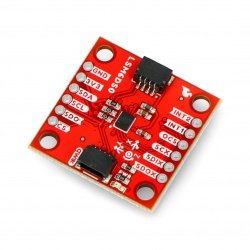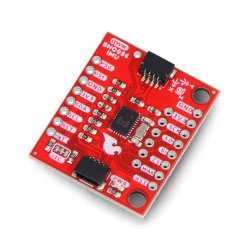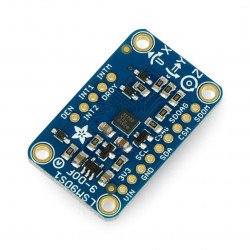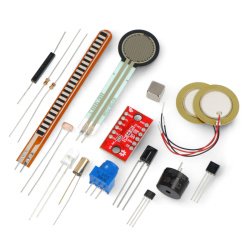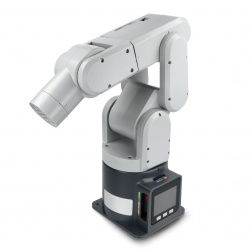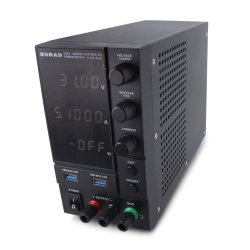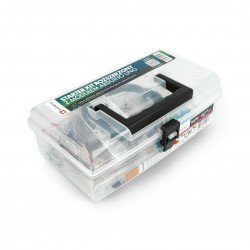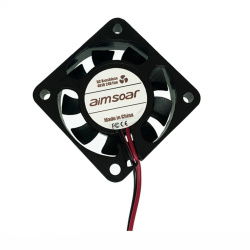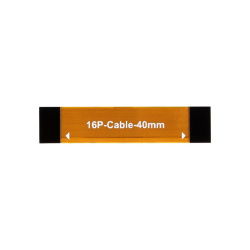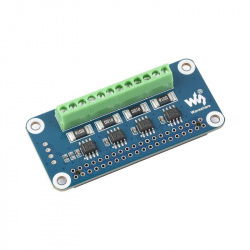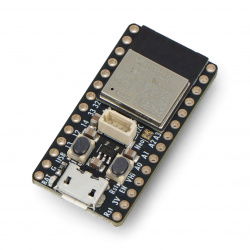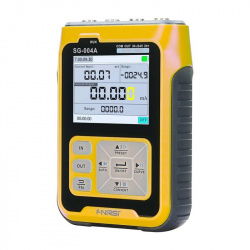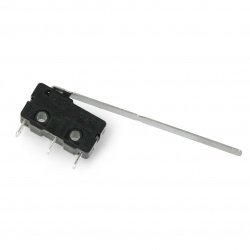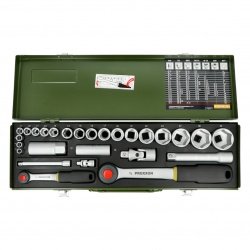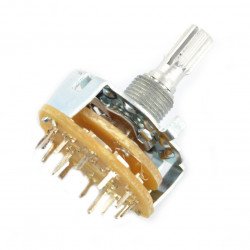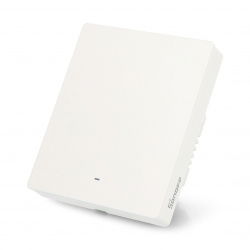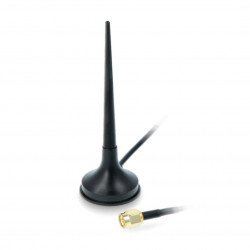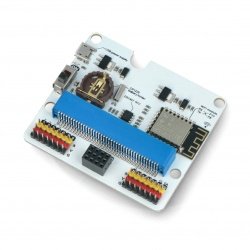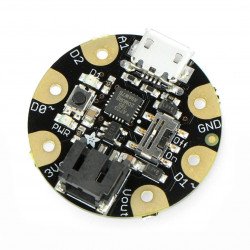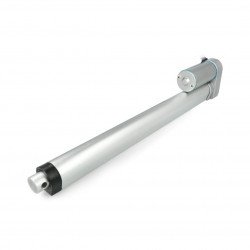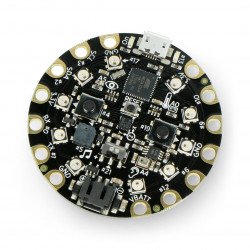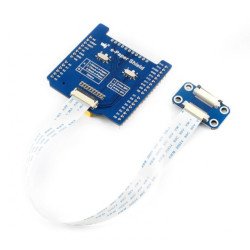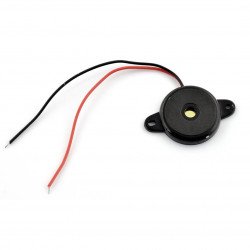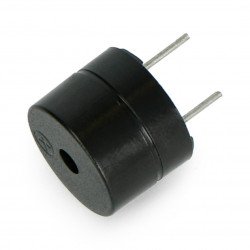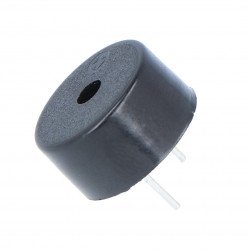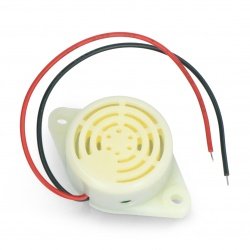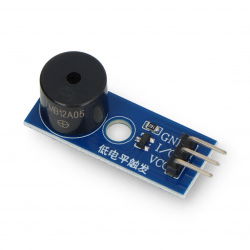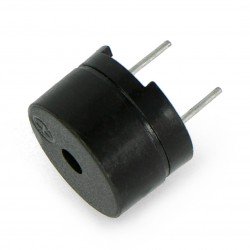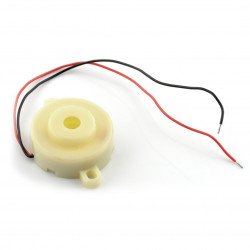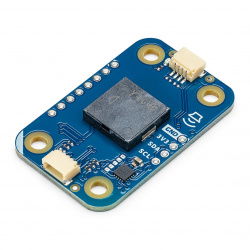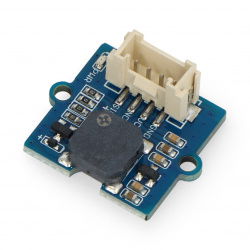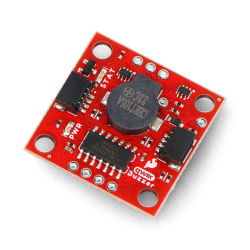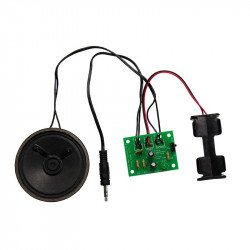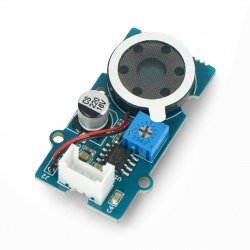Acoustic signaling is the basic form of device communication with users and in terms of popularity it is second only to visual signaling. Acoustic communication devices include many different groups of components. One of the most interesting devices are sound buzzers. Their main task is to generate sound, which allows for efficient communication. Properly programmed devices will be able to inform the user about the condition of the equipment and other important things. These types of simple acoustic generators have virtually every computer. Surely everyone knows the characteristic sound emitted by the computer's motherboard buzzer when the computer or the BIOS freezes.
Buzzers - sound generators
Buzzer without generator 23mm 1-40V in a case
Piezoelectric transducer in a case with put out wires and mounting handles.Active buzzer with generator 5V 12mm - THT
Buzzer with continuous tone generator with a diameter of 12 mm. Power voltage of 5 V.Buzzer without generator 3-16V 14mm - THT
Buzzer without generator about 14 mm in diameter. Voltage supply range from 3 V to 16 V.Active buzzer with generator FY248 23mm 3-24V
Piezoelectric transducer in a case with put out wires and mounting handles.Buzzer with generator 30mm 3-24V in a case
Module with buzzer with a generator in a case with put out wires and mounting handles.Passive buzzer module without generator - black
Module with buzzer without a generator, allows you to generate audio signals with a signal voltage of a certain frequency. Board in black.Module with active buzzer with generator - SENV0005
The active buzzer module is a compact and energy-efficient solution for generating sound signals in electronic projects. Thanks to the built-in generator, it requires no...Buzzer without generator 5V 1mm - THT
Passive buzzer (does not have a generator) with a diameter of 12 mm , designed for THT threaded mounting. Powered by 5 V .Buzzer with generator 32mm 12V in a case
Module with buzzer with a generator in a case with put out wires and mounting handles.Piezoelectric membrane 27mm - 10pcs
Piezo membrane made of brass with an outer diameter of 27 mm, internal 19 mm and a thickness of 0.24 mm. Resistance 250 Ohms, capacitance 45 NF, frequency 2.5 kHz.Piezoelectric membrane with wires - 20mm - SparkFun SEN-10293
The piezoelectric elements are useful for detecting the vibration or knocking. You can use them in a simple way by reading the voltage at the output. It can also be used for...Arduino Modulino Buzzer - sound module with buzzer - Qwiic - ABX00108
The Modulino Buzzer ABX00108 is an intelligent module with a built-in sound generator that allows you to play simple tones, alarms, and audible signals in your Arduino...Grove - Buzzer - module with active buzzer
Active buzzer module from Grove. It e mits a uniform tone after taking a high position. When using PWM, it can generate different sounds and effects. The power voltage from...Passive Buzzer Unit - Unit expansion module for development modules M5Stack
Buzzer Unit is a small passive buzzer, with a frequency of 4 kHz . The module produces sound up to 72 dB (within a radius of up to 10 cm from the module) at rated input...Grove - module with passive buzzer - Seeedstudio 107020109
A module with a passive buzzer that allows you to change the sound tones by adjusting the PWM frequency. The buzzer can be used as an alarm siren, its maximum volume is 80 dB...Active buzzer module - Qwiic - SparkFun BOB-24474
A buzzer module from SparkFun that allows you to add simple sound signals to your electronic project. It is based on the ATtiny84 chip and uses the Qwiic system, so...- Sale
- SPECIAL OFFERS
Mono Amplifier Kit with Power Switch and status LED - Kitronik 2173
The set consists of elements for building an amplifier based on NCP2890 circuit together with power switch and status LEDs. The output power of the amplifier is 1 W, the set...Velleman VMA319 - module with active buzzer - 2 pcs.
Module with buzzer with a generator, allows you to generate audio signals with a constant voltage signal. Board in black. Set includes 2 pieces of modules.Active buzzer module with generator - black - Iduino ST1143
Module with buzzer with a generator, allows you to generate audio signals with a constant signal voltage. Board in black.Grove - a speaker with a digital interface
Speaker module Grove is a device controlled by the PWM signal. It c an work as a simple buzzer or audio player. The volume is adjustable with the built in potentiometer. The...- Discontinued product
In this category of our Botland electronics store, we present both simple sound pickups and more advanced buzzers. The latter are equipped with generators and modular tone generators. The choice of the right solution for the designed device is dictated by many factors. They mainly include: the type of application, the amount of space available in the housing, as well as the characteristics and the required volume of the signaling. Check out the products below and scroll down for more information!
A simple sound converter or a buzzer with a generator – what to choose?
If we decided that we need a sound signaling device, then that's not all. You then have to choose which device will work best.
In terms of construction, the simplest device will be acoustic signaling in the form of a piezo transducer (sometimes so-called ‘plates’) or a passive buzzer in the housing. Passive buzzers available differ in the way they operate. Piezo transducers convert the alternating voltage into distortions of the piezoelectric material. The result of this process is the generation of a sound wave. In turn, acoustic electromagnetic buzzers use the principle of operation of a classic electrodynamics’ loudspeaker.
Regardless of the design, all passive buzzers require alternating voltage to operate. It can be produced by a microcontroller or any sound generator system. If we decide to use a passive buzzer and control with a microcontroller, we should only remember that microprocessors have a limited current output capacity. Moreover, using an appropriate electronic system, it is possible to both control the sound frequency and modulate the sound amplitude. The sound generator (buzzer) is one of the elements that will be 100% useful when creating various types of electronic projects - both intermediate and professional ones.
Acoustic buzzers – what should you know about them?
The buzzer with the generator significantly simplifies the use of the converter in the built circuit. This is due to the design and technical possibilities. The housing of the active buzzer houses a simple, highly miniaturized alternating voltage generator. Thanks to this, in order to activate this type of buzzer, it is enough to apply DC voltage. The voltage value should be within the range given in the technical specification of a specific model.
The undoubted advantage of such devices is that they enable control without the need to generate an alternating waveform. Due to the fact that we have no influence on the amplitude of the alternating signal generated by the buzzer, in this type of element the possibility of modulating the amplitude is limited to simply switching the buzzer on and off. In most applications, however, this is completely sufficient, because with the help of a very simple code or system, you can program the buzzer to work exactly as you want.
Buzzers – basic and more advanced devices
There are many types of buzzers. First of all, we can distinguish passive and active buzzers. These devices are available both as single pieces and as complex modules. The latter make it possible to conveniently screw the buzzer anywhere in a given component. The connection is most often done with classic goldpins.
For semi-professional and fully professional applications, e.g. advanced applications, the tone generator is the perfect choice. The system can not only work as a classic buzzer, but also allows you to control the amplitude of the sound and its pitch. So it is suitable for playing simple melodies. In this case, the pitch is controlled by a PWM signal.




